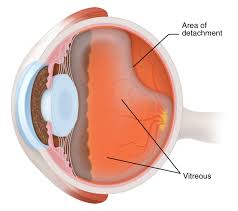
中文词源
vitreous 玻璃质的
来自拉丁语vitrum,玻璃,词源同water,水,即玻璃的,玻璃质的。
英语词源
- vitreous
-
vitreous: [17] Latin vitrum meant ‘glass’ (it may be the same word as vitrum ‘woad, plant producing blue dye’, the link being the bluishgreen colour of glass, and it might even be distantly related to English woad itself). From it was derived vitreus ‘clear, transparent’, which gave English vitreous. The sulphates of various metals have a glassy appearance, and so in medieval Latin the term vitriolum (a derivative of vitrum) was applied to them – whence English vitriol [14].
=> vitriol - vitreous (adj.)
- early 15c., "glasslike," from Latin vitreus "of glass, glassy," from vitrum "glass," which perhaps was so called for its color (compare vitrium "woad"). Vitreous humor attested from 1660s.
权威例句
- 1. The distinctive feature of vitreous opacities is their actual movement on motion of the eye.
- 玻璃体混浊的特点是跟随眼球运动而活动.
- 2. Results: The display of vitreous hemorrhage was classified into two typical sonography.
- 结果: 患眼玻璃体内表现可归纳成两种典型的超声特点.
- 3. After the repair of the corneosclera wound , artificial vitreous implantation was conducted.
- 结果:术后角膜水肿及前房炎症反应轻, 裸眼视力0.5以上19眼.
- 4. Modern wall tiles may be highly glazed and semi vitreous.
- 而现代的墙砖多采用玻璃砖或半玻璃砖.
- 5. Conclusion B - mode ultrasonography is helpful in diagnosis of vitreous hemorrhage.
- 结论B 型 超声有助于临床诊断玻璃体积血.
